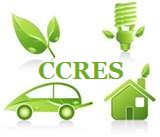Islands and island regions face a particular set of energy challenges linked to their special geographic and climatic conditions. Many of our European islands have expensive oil-based energy structures, which mean that they are still dependent on costly fossil fuel imports. Islands need therefore to generate their own clean, competitive energy from renewable sources, further deploy energy efficiency solutions and innovative technologies. To discuss these issues at the highest institutional level and with the wide range of stakeholders, the second Clean Energy for EU Islands Forum take place in the island of Lanzarote, in the Canary Islands of Spain, November 2018.
There are more than 2200 inhabited islands in the EU. Despite having access to renewable sources of energy, such as wind and wave energy, many of them depend on expensive fossil fuel imports for their energy supply. As part of the 'Clean Energy for All Europeans' package, the EU's Clean Energy for EU Islands initiative provides a long term framework to help islands generate their own sustainable, low-cost energy. This will result in:
- Reduced energy costs and greatly increased production of renewable energy and the construction of energy storage facilities and demand response systems, using the latest technologies
- better energy security for islands, which will be less reliant on imports
- improved air quality, lower greenhouse gas emissions, and less impact on islands' natural environments
- the creation of new jobs and business opportunities, boosting islands' economic self-sufficiency.
The Clean Energy for EU Islands initiative was launched in May 2017 in Malta, when the European Commission and 14 EU countries (Croatia, Cyprus, Denmark, Estonia, Finland, France, Germany, Greece, Ireland, Italy, Malta, Portugal, Spain, and Sweden) signed a Political Declaration. #CleanEnergyIslands
This year’s Forum agenda will focus on finding ways to accelerate the clean energy transition on islands by making them frontrunners in the transformation of their energy systems, ensure secure and competitive energy, and bring benefits to local economies. The Forum is organised by the European Commission with the support of the newly established Secretariat for the Clean Energy for EU Islands Initiative and co-hosted by the Government of the Canary Islands. The first Forum, officially launching the Initiative, took place in Chania, Greece, in September 2017.
Participants include high-level speakers from EU institutions, national ministers from several Member States, local authorities, citizens' organizations, business and academia, and together they will share best practices and try to enhance collaboration to advance the clean energy transition on EU islands and discuss progress on the Clean Energy for EU Islands Initiative. The Initiative promotes the energy self-reliance of islands, encourages the reduction of imported fossil fuel dependency, and facilitates the deployment of the best available clean technologies in islands. It is part of the European Commission’s ‘Clean Energy for All Europeans' package, and was endorsed by a Political Declaration on Clean Energy for EU Islands, signed in Valletta, Malta, in May 2017. The Commission is committed to ensuring that the energy concerns of island inhabitants are at the forefront of the energy transition and are key to policy developments.
The second Clean Energy for EU Islands forum is organised by the Secretariat for the Clean Energy for EU Islands Initiative on behalf of the European Commission and co-hosted by the Government of the Canary Islands. The forum aims at taking stock of the Initiative's first year, and at presenting the offer of support for islands within the Secretariat's framework.
It will feature high level speakers from the EU institutions, practitioners and activists involved in clean energy transition. The forum's target audience are local authorities, citizens' organizations, business and academia.
The forum agenda will focus on the following thematic blocks:
- Multilevel governance for clean energy transition
- Building stakeholders' engagement and bottom-up approach to decarbonisation
- Outermost Regions' experience in pursuing zero-emission transformation
- Best practice in planning island-wide decarbonisation
The event will be web streamed (link will be activated on 5/11/2018)
For social media: #CE4EUIslands
Background
Islands and island regions face a particular set of energy challenges related to their specific geographic and climatic conditions. The role of islands as platforms for pilot initiatives on clean energy transition in the EU and their potential to serve as showcases at international level was explicitly recognised in the Commission Communication on "Clean Energy for all Europeans".
The Commission, together with 14 Member States, signed under the Maltese Presidency in May, 2017 the "Political Declaration on Clean Energy For EU Islands" and shortly after launched the Clean Energy for EU Islands Initiative, at the inaugural forum in Chania, Crete. The Initiative promotes the energy self-reliance of islands, encourages the reduction of the dependency on costly imported fossil fuel, and aims to facilitate the delivery of best available clean technologies to islands. The Commission is committed to ensuring that the energy concerns of island inhabitants are at the forefront of the energy transition and are central to policy developments.
In support of the Initiative, the Commission in cooperation with the European Parliament set up the Secretariat for the Clean Energy for EU Islands Initiative which has been operational since June 2018. It acts as a platform of exchange of practice for islands' stakeholders and provides dedicated capacity building and advisory services.
Croatian Center of Renewable Energy Sources ( CCRES)






No comments:
Post a Comment